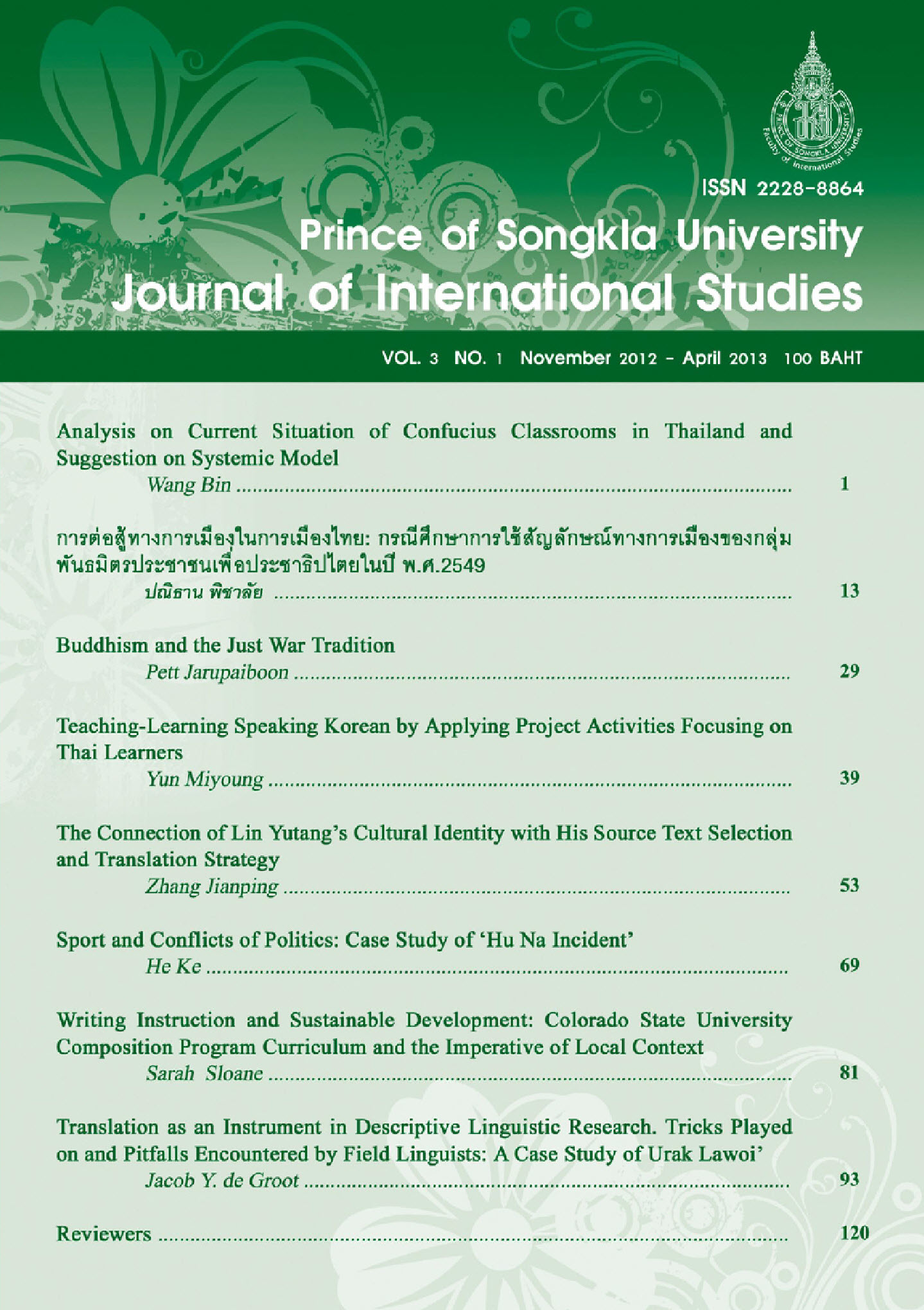Buddhism and the Just War Tradition
Main Article Content
Abstract
This paper aims to investigate two major theoretical concerns regarding the relationship between Buddhism and the Just War tradition. The first, the main part, addresses the question of how Buddhist teachings can be interpreted to justify warfare. The second concern is directly related to the first, with greater emphasis on the politics of interpretation and justification in actual practice. In particular, it briefly addresses the question of how Buddhism has been interpreted by some Buddhist leaders to justify participation in war.
Article Details
Statements and opinions expressed in articles herein are those of the authors and do not necessarily reflect the position of the editors or publisher.
Article, information, text, image, etc. which are published in Journal of International Studies, belong to Journal of International Studies. If anybody or any organization would like to use part or whole of them, they must receive written permission from Journal of International Studies before usage.
References
Chappell, D. W. (2004). Buddhist Perspectives on Weapons of Mass Destruction. In S. H. Hashmi & S. P. Lee (Eds.), Ethics and Weapons of Mass Destruction: Religious and Secular Perspectives (pp. 213-236). New York: Cambridge University Press.
Ferguson, J. (1977). War and Peace in the World's Religions. London: Sheldon Press.
Harvey, P. (2000). An Introduction to Buddhist Ethics: Foundations, Values and Issues. Cambridge: Cambridge University Press.
Kent, D. W. (2010). Onward Buddhist Soldiers: Preaching to the Sri Lankan Army. In M. Jerryson & M. Juergenmeyer (Eds.), Buddhist Warfare (pp. 157-178). New York: Oxford University.
Keown, D. (2005). Buddhist Ethics: A Very Short Introduction, New York: Oxford
University Press.
King, S. B. (2005). Being Benevolence: The Social Ethics of Engaged Buddhism Honolulu: University of Hawai'i Press.
Paige, G D. & Gilliatt, S. (Eds.). (1999). Buddhism and Non-Violent Global Problem Solving: Ulan Bator Explorations. Honolulu: Center for Global Nonviolence
Payutto, P.A., Bhikkhu. (2007). Vision of the Dhamma: A Collection of Buddhist Writin
in English. Nakhon Pathom: Wat Nyanavesakavan.
Prebish, C. S. & Keown, D. (2006). Introducing Buddhism. New York: Routledge.
Schmithausen, L. 1999. Aspects of the Buddhist Attitude towards War. In J. E.M. Houben
& K. R. van Kooij, Violence Denied: Violence, Non-violence and the Rationalization
of holence in South Asian Cultural History (pp. 45-68).
Leiden, Brill. Suzuki, D.T. (1959). Zen and Japanese Culture. Princeton: Princeton University Press.
Victoria, B. D. (2003). Zen War Stories. New York: RoutledgeCurzon.
Walshe, M., Trans. (1987). Thus Have I heard: The Long Discourses of the Buddha
[Dīgha Nikāya). London: Wisdom Publications,
Welch, H. (1965). The Reinterpretation of Buddhism. The China Quarterly, 22, 143-153
Wenker, K. H. (1996). Buddhism and War. In D. A. Wells (Ed.), An Encyclopedia of
War and Ethics (pp. 50). Westport, CT: Greenwood Press.


